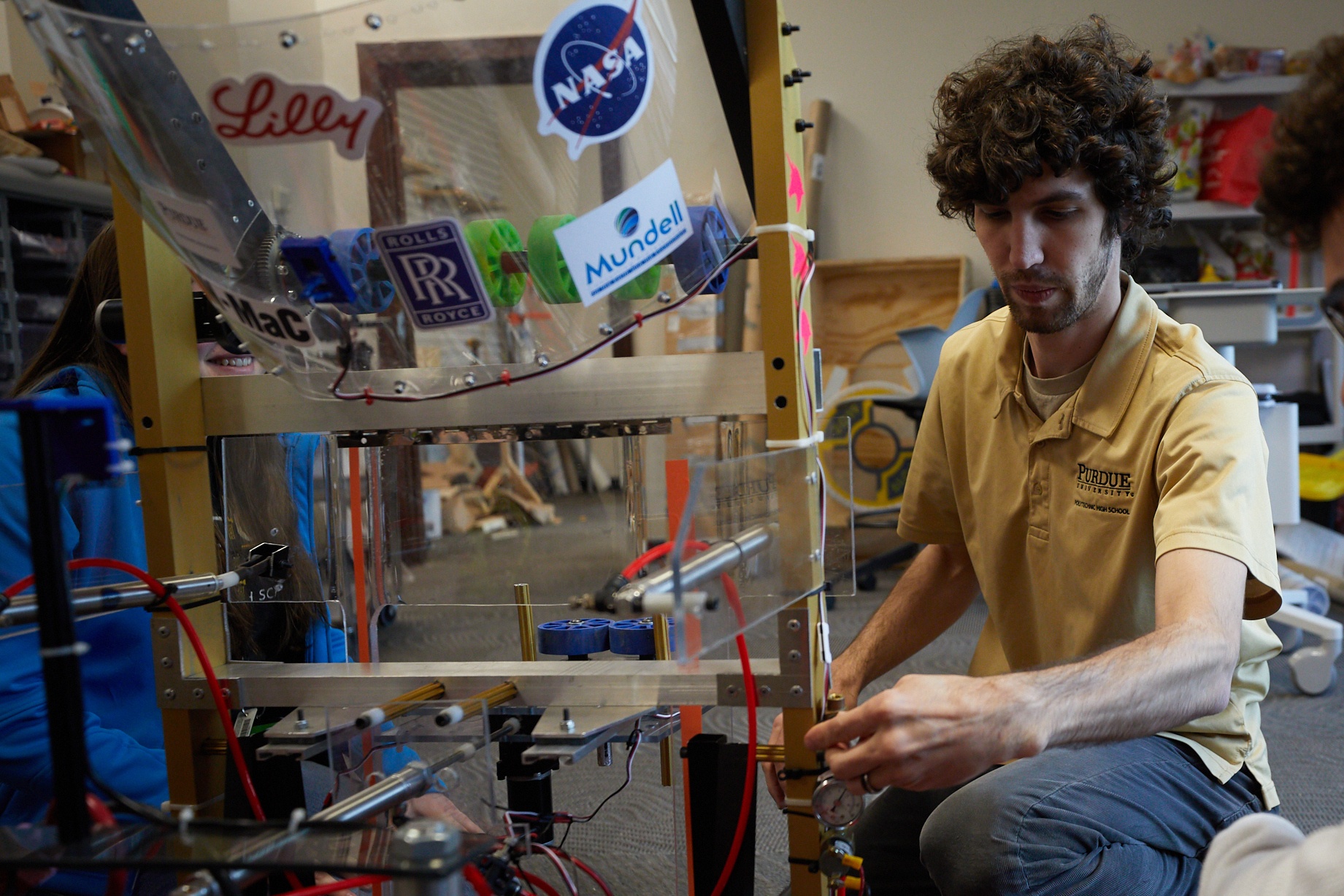The Transformative Magic of “Doing” Learning, Instead of “Receiving” Learning
This Indiana educator shares how hands-on, student driven learning has changed everything at her school.

Xunzi was a Confucian philosopher and teacher who said:
“Not hearing is not as good as hearing, hearing is not as good as seeing, seeing is not as good as knowing, knowing is not as good as acting; true learning continues until it is put into action.”
I think about those words a lot, as they help remind me how important it is for young people to learn with their eyes, ears, hands, and heart. When they combine, students find their passion for education so they will want to participate in learning, and not just receive a diploma after four years.
Here at Purdue Polytechnic High School, we believe that it is vitally important for all students to go out and immerse themselves in real-world challenges. That’s because the world is a dynamic, fast-changing place and we need to prepare our students for the world by having them go out into it.
We can help them explore the world by making sure that when students have field trips, the experience is enriching and provides them with the opportunity to interact with the world. They should be able to wander into it and ask people questions so they can learn about how people feel about real-world issues.
And don’t just take it from me! Just read what Francisco, an 11th-grader at PPSH, had to say about a visit to Purdue University’s campus earlier this year:
“My favorite field trip so far was getting the opportunity to learn more about Purdue’s Krannert School of Management. It was an amazing experience to learn more about what Purdue has to offer and it helped me confirm one of my passions of doing business in a science field. Getting the chance to take field trips to learn more about my possible future careers and the variety of choices I have is one of the reasons why I am excited to graduate high school.”
While we can all agree that the time spent in the school classroom is important as that’s where so much learning takes place, we can’t ignore what the real-world classroom offers. No matter where you go, there’s going to be a chance to learn something new.
For example, we had students go outside of school to learn about Republic Airways and the Indianapolis Zoo. The visit tied to a project that explored what it is like to transport materials all around the world and how the natural world needs saving.
During the trip, our students got to go into airplanes, talked to pilots about what their job was like, spoke to zoo employees about the importance of conservation, toured wild plant gardens, and saw invasive species.
These are experiences that help bring the world they’re studying to life
In their passion projects, students learn about the skills that they will need the most to help them navigate the complexities of life: emotional regulation, reasoning, precision, problem-solving, collaboration, thinking historically, speaking and listening, and growth mindset.
From doing DIY home repair to learning game theory (and everything in between) through chess, students are really delving into their interests and coming out on the other side with real-world-applicable skills.
At the end of the year, students will have participated in at least 6 projects that are based on their interests and have experiences with a wide variety of real-world skills.
Learn more about how our projects prepare students to thrive in life beyond graduation:
- Is Design Thinking The Key to Workforce Development?
- What Is STEAM Education?
- These High School Students Are Learning From Local Businesses Instead Of Textbooks
A version of this essay was originally published in the Purdue University Blog.










